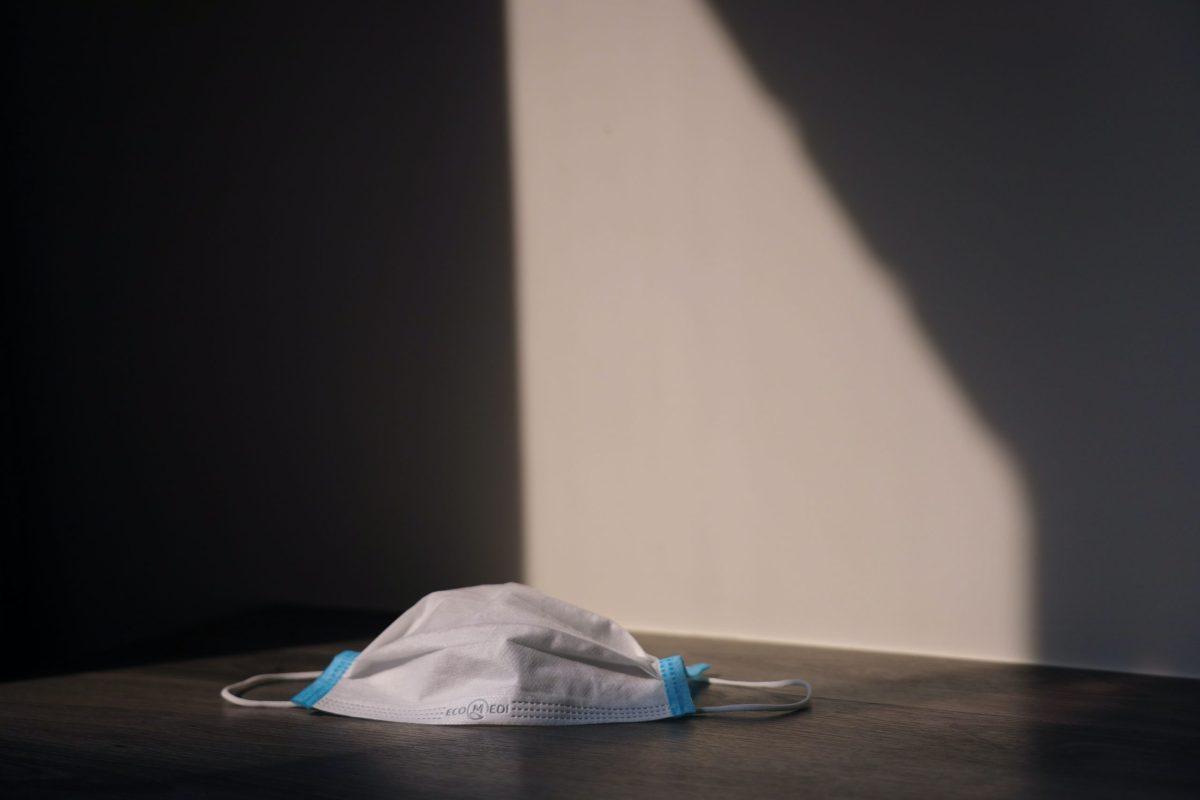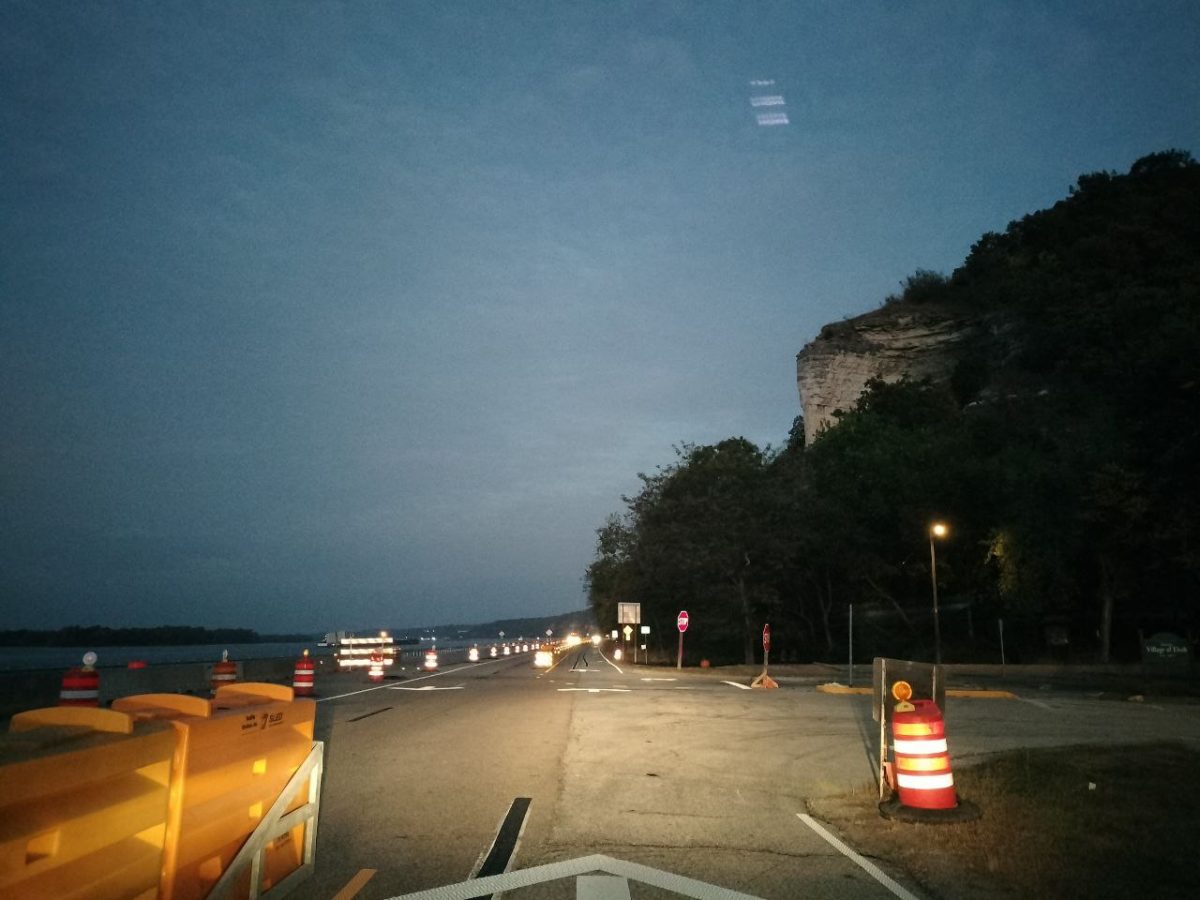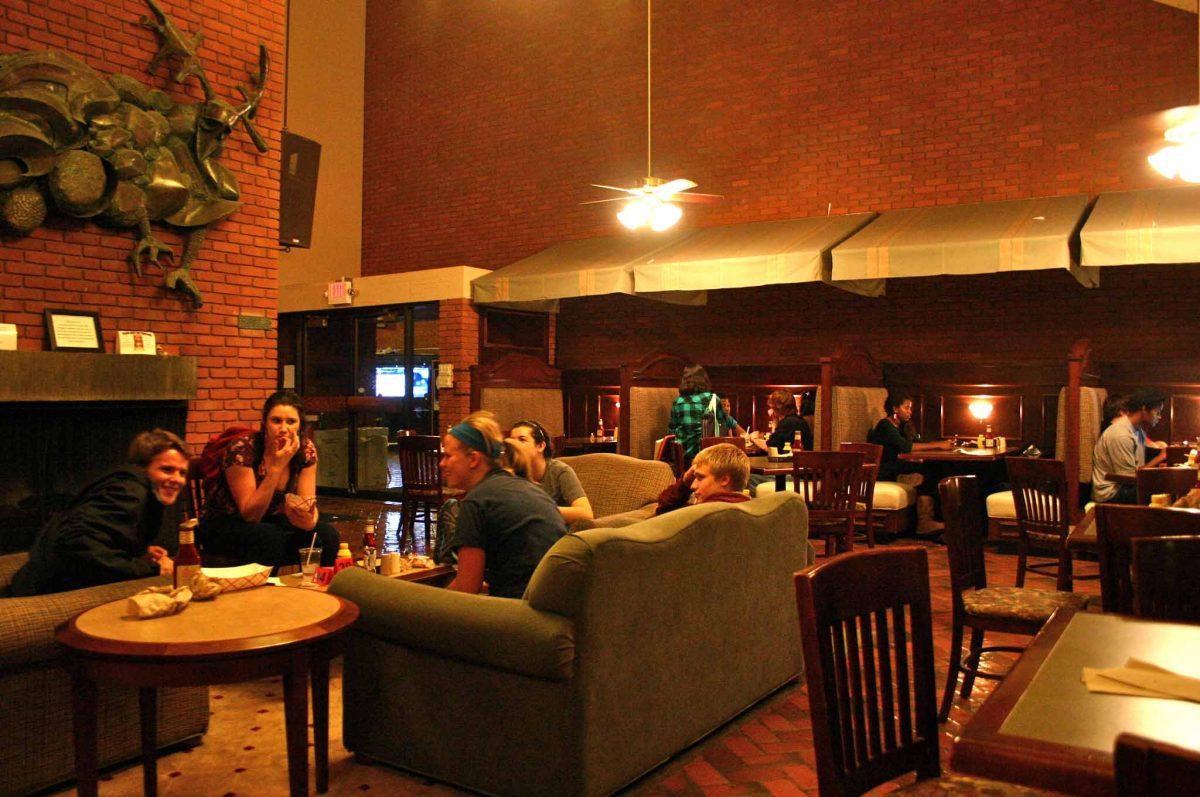Do you remember the tent outside the dining hall? The one where students would eat during Fall 2020? Do you remember the green checks students needed to show before getting food at the dining hall? Compared to the last two years, it feels like COVID is no longer an issue on campus. But while most restrictions have been lifted, this doesn’t mean that the pandemic is completely over.
“Things have changed from the spring to the fall,” said COVID coordinator Mitchell Stock when asked about current policies. “This is different now, because there’s no longer a requirement for individuals who are on a college campus to test if not vaccinated,” he added. “But again, that’s really based on the guidance that we’re seeing from above [federal and state-level mandates].”
Stock began his work for the college in January of 2021. At the time, a new semester was about to start and the number of cases was growing nationwide. When asked, Stock said that hiring a point-person whose main task would consist of handling pandemic-related concerns on campus seemed timely and relevant. He got a foot in the door with his coordinating position, and is now also working for the admissions department.
Stock sees his experience in the military as an asset to strategize and learn quickly when issues arise. He served for nine years in the U.S. Army and is still a member of the reserves. It’s only been seven weeks so far, but the fall semester has brought its share of lessons.
“Honestly, this was a lot simpler when we had very explicit guidance from the government,” he said. “And it turns out that, as they say in the military, retreating is often the most dangerous part of the entire battle, right? I think we’re in that moment where, as we turn our backs and remove ourselves from the situation because the trend is overall improving, … we have to continuously assess, … how do we handle [the virus]?”
Early in the semester, the number of positive cases on campus surged. There was no widespread contagion, but at least four individuals had to be isolated in Joe McNabb House in the first weeks, per the Sept. 8 Watercooler. Junior Kyrstyn Cieply was one of them, and she describes her quarantine as a “lonely experience.”
“I was alone in Joe for … six days, and I was told that I could contact our RCs [residential counselors] if I didn’t have any other resources but I should use my network of friends to get meals delivered to me.”
Junior Laura Mayo had to go through the same process when she was isolated in September. And some things didn’t really work for her either. Besides describing the experience as “dismal,” she deplored the lack of support for meals. “It’s a lot to ask of them [our friends] when they have classes to do,” she said.
Neither Cieply nor Mayo had problems reaching out to their friends. They also said that they kept in touch with both their RCs and Stock whenever possible. “My RC Shannon [John] was amazing and came to visit, deliver food, and check in on us,” said Mayo.
But Cieply wondered if first-year students could have been more affected by this lack of support for meals.
“My concern is that freshmen or people who are maybe new to school … don’t have a strong network of people around them,” she said. “If we’re asking people to quarantine, [we should be] making sure that they have people that they can depend on, regardless of their social network.”
The current policy is that, if a student thinks they are positive, they should communicate with both their RC and Stock. Joe McNabb House remains the isolation house for students who test positive, even with the England abroad now living in there. Stock wrote in a follow-up email interview that “Joe is large enough that we still have open wings with plenty of rooms and unused bathrooms so that we wouldn’t need to overlap the two populations.”
Reflecting back on her isolation, Cieply recalled a few hurdles with room assignments in Joe McNabb, at some point.
“In one of my last days of quarantine, somebody else was moved into Joe, and it was a male,” she said. “And they unlocked my door, they were going to make him move into my room … but afterward he was moved upstairs … it was odd they didn’t know I was there initially.”
When asked about the overall situation, Stock recognized a lot happened at the outset of the semester, and that things should now be running more smoothly. He intends to keep on monitoring the national situation along with the COVID committee to determine what the best practices are for the spring.
“I think, for the foreseeable future, we will need to have some provision for testing and isolation,” he noted. “In the principle of reducing the fear of others, we should take care of ourselves, and we should be responsible, of course,” he added. “But also, again, from our own principles, we should recognize that this is not going to drive the way that we live our lives forever.”
Views among community members have largely differed on how to best handle the pandemic over the last two and a half years. Stock wants to make sure everyone is heard and feels comfortable in sharing their concerns or ideas. As often, communication is key in making sure students – and Principians, more broadly – are taken care of.
“If there’s something else out there, by all means, we want to hear about that,” Stock said. “Always welcome to hear more feedback as we move forward.”




